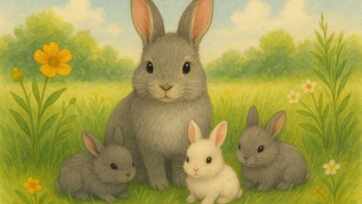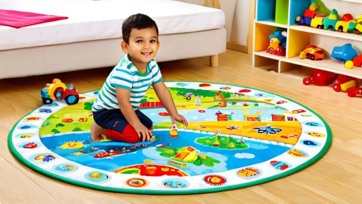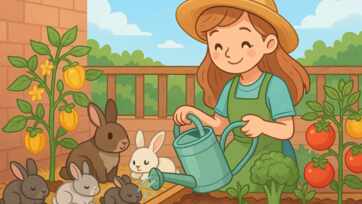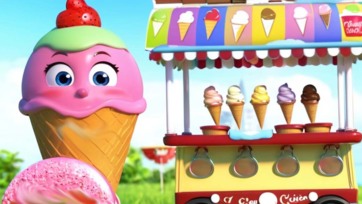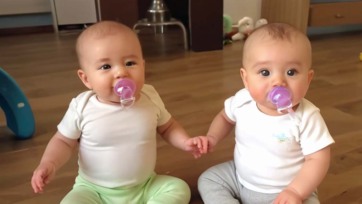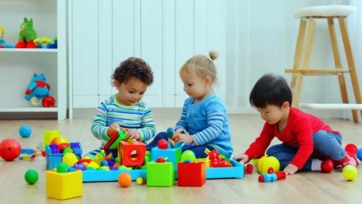Toys for Children Aged 1-7: What to Look for When Shopping?
For children, play is not just entertainment but one of the most important tools for learning. Choosing the right toys according to their age and developmental stage can contribute to their cognitive, physical, and emotional development. Here are some factors to consider when buying toys for children aged 1-7.
1-2 Year Olds At this age, children primarily develop their sensory and motor skills. Choose toys that help them in this development. *Recommended Toys:* - *Soft Toys:* Plush animals that are easy to grasp and safe. - *Sensory Toys:* Toys that offer different textures, colors, and sounds. - *Movement Toys:* Ball tracks, push and pull toys that encourage walking and crawling. *What to Look for When Shopping:* - Safety: Avoid small parts that could be swallowed. - Durability: Toys should be sturdy and easy to clean.
2-3 Year Olds The 2-3 age group has more developed fine motor skills and begins to explore role-playing games. *Recommended Toys:* - *Building Blocks:* Large blocks that enhance dexterity. - *Role-Playing Tools:* Toy kitchens, doctor kits, puppet theaters. - *Interactive Books:* Flap books, sound books that encourage speech and vocabulary development. *What to Look for When Shopping:* - Creativity: Choose toys that stimulate imagination. - Safety: Ensure the toys' paints and materials are non-toxic.
3-5 Year Olds At this age, children are interested in more complex toys that help develop logical thinking and problem-solving skills. *Recommended Toys:* - *Puzzles:* Simple puzzles that enhance problem-solving skills. - *Board Games:* Games with simple rules that help understand rules and develop social skills. - *Art Supplies:* Painting sets, playdough, coloring books. *What to Look for When Shopping:* - Educational Value: Choose toys that teach something (numbers, letters, shapes). - Interests: Observe what topics interest the child and choose toys related to those.
5-7 Year Olds Children aged 5-7 require more complex toys and challenges that help develop social and cognitive skills. *Recommended Toys:* - *Construction Toys:* LEGO sets that enhance creativity and fine motor skills. - *Electronic Toys:* Interactive learning toys, tablets with educational apps. - *Sports Equipment:* Balls, jump ropes that encourage physical activity. *What to Look for When Shopping:* - Developmental Level: Choose toys that match the child's developmental level and interests. - Safety: Ensure toys meet safety standards and do not have sharp edges.
Summary When selecting toys, always consider the child's age, developmental stage, and interests. The right toys not only entertain but also teach and develop children, contributing to their happiness and success.
b: Toys for 2-3 Year Olds: What to Consider When Buying?
Toys for 2-3 Year Olds: What to Consider When Buying?
For 2-3 year old children, toys are essential tools for learning, development, and fun. At this age, children are developing their fine motor skills, imagination, and social skills. Therefore, it is crucial to select toys that foster these aspects of their growth.
Recommended Toys
- Building Blocks Building blocks help children develop their fine motor skills, hand-eye coordination, and creativity. They also encourage problem-solving skills as children figure out how to construct different structures.
- Puzzles Simple puzzles with large pieces are great for developing cognitive skills and hand-eye coordination. They also help children understand shapes and patterns.
- Art Supplies Crayons, finger paints, and play dough allow children to express their creativity and improve their fine motor skills. These activities also help in developing their color recognition and artistic abilities.
- Pretend Play Sets Kitchens, tool sets, and doctor kits encourage imaginative play and help children understand everyday activities. These toys also promote social skills as children play together and take on different roles.
What to Consider When Buying?
Safety Ensure that the toys are made from non-toxic materials and do not have small parts that could be a choking hazard. Sturdy and well-constructed toys are less likely to break and create sharp edges.
Educational Value Choose toys that are both fun and educational. Look for toys that promote problem-solving, creativity, and social interaction. #### Age-Appropriate Select toys that match the developmental stage of your child. Toys designed for 2-3 year olds should be challenging enough to keep them engaged but not so difficult that they become frustrated.
Durability Toys for this age group need to withstand rough play. Look for toys that are easy to clean and can endure being dropped or thrown. #### Interest and Engagement Consider your child’s interests. If they love animals, for example, animal-themed toys or books might be particularly engaging for them. The more interested a child is in a toy, the more they will learn from it.
Conclusion When selecting toys for 2-3 year olds, prioritize safety, educational value, age-appropriateness, durability, and the child’s interests. The right toys can significantly enhance your child's development, creativity, and social skills, all while providing hours of fun and entertainment.
c: Toys for 1-2 Year Olds: What to Consider When Buying?
Toys for 1-2 Year Olds: What to Consider When Buying?
For 1-2 year old children, play is not just about fun, but it is one of the most important tools for learning and development. At this age, children are primarily developing their sensory and motor skills. Therefore, it is important to choose toys that help them in this development.
Recommended Toys
- Soft Toys Soft plush animals are easy to hold and safe. They are ideal for cuddling and increasing comfort.
- Sensory Toys Toys that offer different textures, colors, and sounds. These toys help children explore the world and develop their sensory perception.
- Movement Development Toys Push and pull toys that encourage walking and crawling. These toys help develop children's motor coordination.
What to Consider When Buying?
Safety Safety is the primary concern. Avoid toys with small parts that children can swallow. The material of the toys should be non-toxic, and the paint should not easily come off.
Durability Toys for this age group often get damaged or dirty. It is important that the toys are durable and easy to clean.
Age-Appropriate Choose toys that match the child's current developmental level. Toys designed for the 1-2 year age group help develop fine motor skills, hand-eye coordination, and sensory perception. #### Creativity and Exploration Choose toys that encourage children's creativity and exploratory abilities. Toys made of simple shapes and textures help develop children's imagination and creativity.
Conclusion When choosing toys for 1-2 year olds, safety, durability, and age-appropriate developmental aspects are the most important considerations. Such toys not only entertain children but also help them learn and develop.
d: Toys for 3-5 Year Olds: What to Consider When Buying?
Toys for 3-5 Year Olds: What to Consider When Buying?
For 3-5 year old children, toys play a crucial role in their cognitive, physical, and social development. At this stage, children are expanding their imaginations, improving their motor skills, and starting to engage in more complex social interactions. Therefore, selecting the right toys can greatly enhance their growth and learning.

